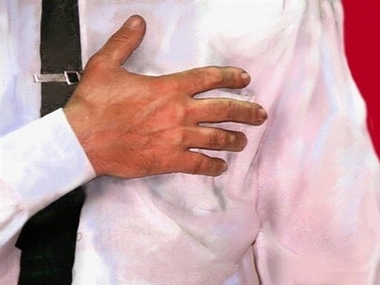Study: Weekend heart attacks riskier
(AP)Updated: 2007-03-15 09:32
TRENTON, N.J. - Heart attack patients have a slightly higher risk of death if they go to the hospital on the weekend, when they are more likely to miss or wait longer for crucial treatments, one of the largest studies of the issue finds.
Even so, doctors say you shouldn't avoid a weekend hospital visit if you think you are having a heart attack or stroke. A delay of even an hour or two raises chances of death or serious heart or brain damage.
The new study of nearly a quarter-million first-time heart attack patients in New Jersey reflects what smaller previous studies have shown about weekend medical care. Recently published Canadian research also showed stroke patients hospitalized on weekends had a higher chance of dying than those admitted on a weekday.
In the latest study, published in Thursday's New England Journal of Medicine, researchers at Robert Wood Johnson Medical School in Piscataway, N.J., used a huge statewide database. They tracked 231,164 patients admitted for a first heart attack from 1987-2002. They looked at trends over four-year periods, partly because of major advances in heart attack treatment over that time, including new clot-busting drugs, artery-clearing angioplasty and tiny devices called stents that prop open cleared-out arteries.
In the most recent four-year period, when care was much the same as today, patients admitted on a weekend were about 7.5 percent more likely to die within a month than those admitted on a weekday. After adjusting for factors such as age and other medical problems, the death rate was 5 percent higher for those admitted on weekends, said the lead researcher, medical student William J. Kostis.
He said the difference in outcomes was obvious by the day after admission and amounted to 1 in 100 patients each year.
"We lose this patient early. It's after the first day or two," Kostis said, adding that the weekend patients were at least one-third less likely to get angioplasty or bypass surgery promptly, compared with weekdays. "It seems very likely to be a factor."
At many hospitals, the catheterization lab where those procedures are performed is closed or has limited service hours on weekends.
In the most recent four-year span, almost 13 percent of heart attack patients admitted on weekends died within a month, compared with 12 percent admitted on weekdays. That could mean thousands of excess deaths, since about 700,000 Americans have a first heart attack each year.
The weekend death rates were similarly higher in most of the previous time periods, too.
Dr. Kirk Garratt, director of the coronary care unit at Lenox Hill Hospital in New York, noted that when the researchers adjusted for whether patients got angioplasty or other invasive treatment, the difference in death rates fell.
"That's a pretty powerful way of saying that the underuse of angioplasty on weekends had a direct effect on patient survival," as other researchers have speculated, Garratt said.
He said that as cardiac care generally improved over the study's 16 years, fewer patients had really severe heart attacks, and that the difference in weekend and weekday death rates in this study appears to mainly reflect whether the mild heart attack patients got angioplasty.
In an editorial in the journal, Drs. Donald A. Redelmeier and Chaim M. Bell of the University of Toronto wrote that research has shown surges in patient complications on weekends.
"If the patient dies on the weekend, no heroics on Monday will suffice," they wrote.
Dr. Harlan Krumholz, a Yale University School of Medicine cardiologist, said differences in staffing levels and communication may play a role in the different death rates. His research team in 2005 found that heart attack sufferers waited 20 to 30 minutes longer for angioplasty on weekends or after hours.
"This may be a quality challenge, for our health system to ensure no matter what time you come to the hospital you're going to get outstanding care" after a heart attack, Krumholz said.
|
||
|
||
|
|

